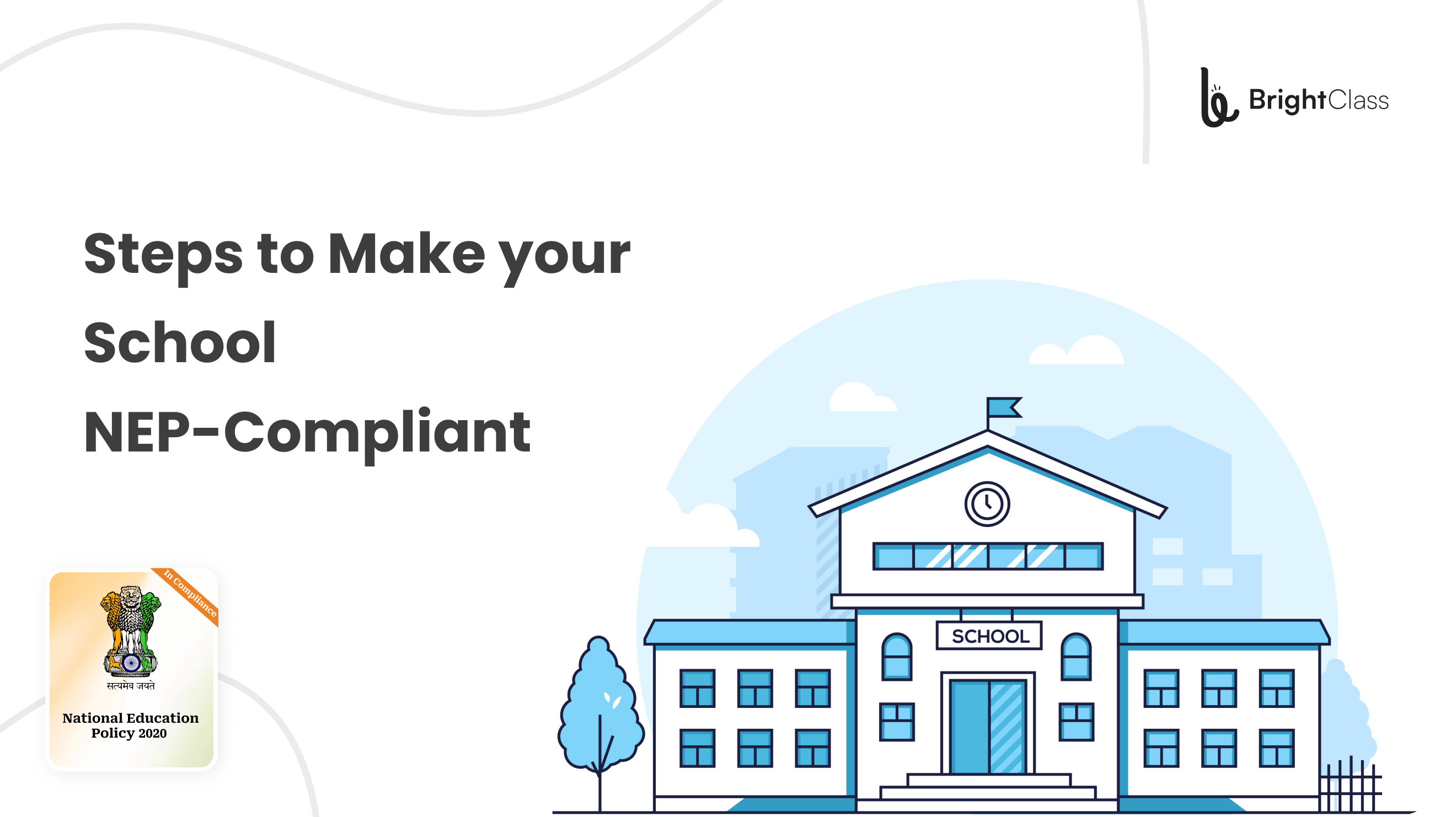
With the implementation of the National Education Policy (NEP), the educational environment has undergone a radical change in recent years. With this significant policy change, the Indian educational system will be transformed to meet the changing demands of students in the twenty-first century. In this tutorial, we will examine the nuances of NEP, comprehend its importance, and investigate the reasons why schools must adhere to its principles.
The significance of NEP lies in its vision to create a holistic and flexible learning environment that fosters creativity, critical thinking, and innovation. By making schools NEP compliant, we pave the way for a future-ready generation equipped to face the challenges of an ever-changing world. This guide is designed to provide schools with a roadmap for adapting to the new educational paradigm, offering insights into the key principles of NEP and outlining the steps needed to ensure compliance.
Schools can organize orientation sessions for parents, teachers,
and staff to familiarize them with the key aspects of NEP 2020.
These sessions can highlight the policy's emphasis on holistic
education, the importance of experiential learning, and the need
for a flexible and multidisciplinary curriculum. Creating
awareness at the outset will garner support and understanding for
the forthcoming changes.
Understanding NEP Requirements
To embark on this transformative journey, it is crucial to
comprehend the core principles and objectives that underpin the
National Education Policy. This section will provide an in-depth
exploration of NEP's structural and curricular changes,
emphasizing the need for schools to realign their policies and
practices accordingly. By gaining a comprehensive understanding of
NEP requirements, schools can lay the foundation for a progressive
and student-centric educational approach.
Schools can establish a dedicated committee or task force responsible for dissecting the NEP guidelines. This committee can conduct regular workshops and training sessions to ensure that teachers and administrators are well-versed in the principles of NEP. By fostering a deep understanding of the policy, schools can effectively communicate its objectives to all stakeholders and facilitate a smooth transition.
Assessing Current School Practices
Before implementing changes, schools must conduct a thorough evaluation of their existing practices. This section will guide schools through the process of assessing their curriculum, teaching methods, and infrastructure. By identifying areas that require improvement, schools can develop a tailored strategy for becoming NEP compliant, ensuring a seamless transition to the new educational framework.
Conducting a comprehensive audit of the existing curriculum can involve mapping it against the interdisciplinary learning approach advocated by NEP. Schools can also assess the effectiveness of current teaching methods by soliciting feedback from students and teachers. Infrastructure audits can identify areas for improvement, such as the need for modernized classrooms or upgraded technology to support innovative teaching methods.
Adapting Curriculum and Pedagogy
NEP advocates for a paradigm shift in teaching methodologies, emphasizing interdisciplinary learning, experiential education, and the cultivation of critical thinking skills. In this section, we will explore practical ways for schools to adapt their curriculum and pedagogy to align with NEP guidelines. By embracing innovative approaches, schools can create a dynamic learning environment that prepares students for the challenges of the future.
Schools can introduce project-based learning modules that cut across traditional subject boundaries, encouraging students to apply knowledge in real-world scenarios. Integrating practical experiences, such as field trips, guest lectures, and hands-on projects, can foster a culture of experiential learning. By incorporating these elements into the curriculum, schools create a dynamic and engaging educational experience in line with NEP 2020.
Adopting Technological Changes
resources can supplement traditional teaching methods, fostering a blended learning environment. Additionally, leveraging educational apps and platforms can enhance students' engagement and offer personalized learning experiences. By incorporating these technological changes, schools not only align themselves with NEP's emphasis on experiential learning but also prepare students for the digital age, equipping them with the skills needed for the evolving global landscape. Teacher training programs should include sessions on integrating technology effectively into the curriculum, ensuring educators are proficient in leveraging these tools to enhance the learning experience.
Enhancing Teacher Training and Professional Development
Teachers play a pivotal role in implementing NEP at the grassroots level. This section will focus on identifying the training needs of teachers, organizing workshops and seminars on NEP principles, and fostering a culture of continuous professional development. By empowering educators with the knowledge and skills needed for NEP compliance, schools can ensure the successful implementation of the policy and create a nurturing educational ecosystem.
Schools can conduct regular workshops focused on building the pedagogical skills necessary for NEP compliance. These workshops might cover techniques for fostering critical thinking, incorporating technology into lessons, and creating inclusive learning environments. Encouraging teachers to participate in online courses, attend conferences, and collaborate with peers can further enhance their professional development, ensuring they are well-equipped to implement NEP-aligned practices in the classroom.
This guide serves as a comprehensive resource for schools navigating the transformative journey towards NEP compliance. By embracing the principles of NEP, schools can contribute to the development of a resilient and future-ready generation, laying the groundwork for a reimagined educational scenario in schools.